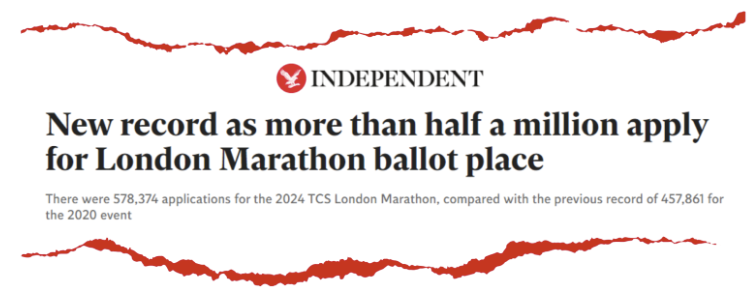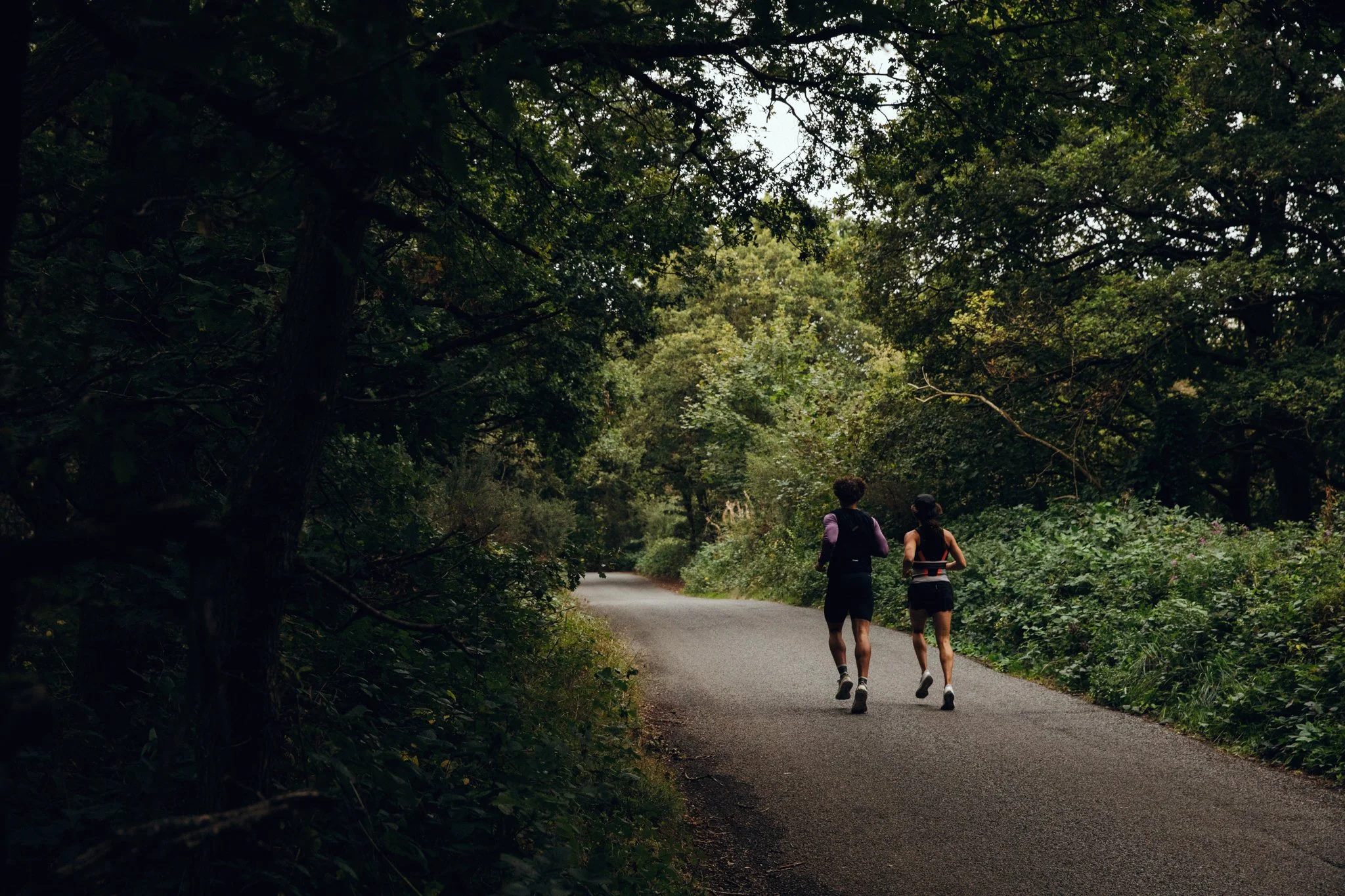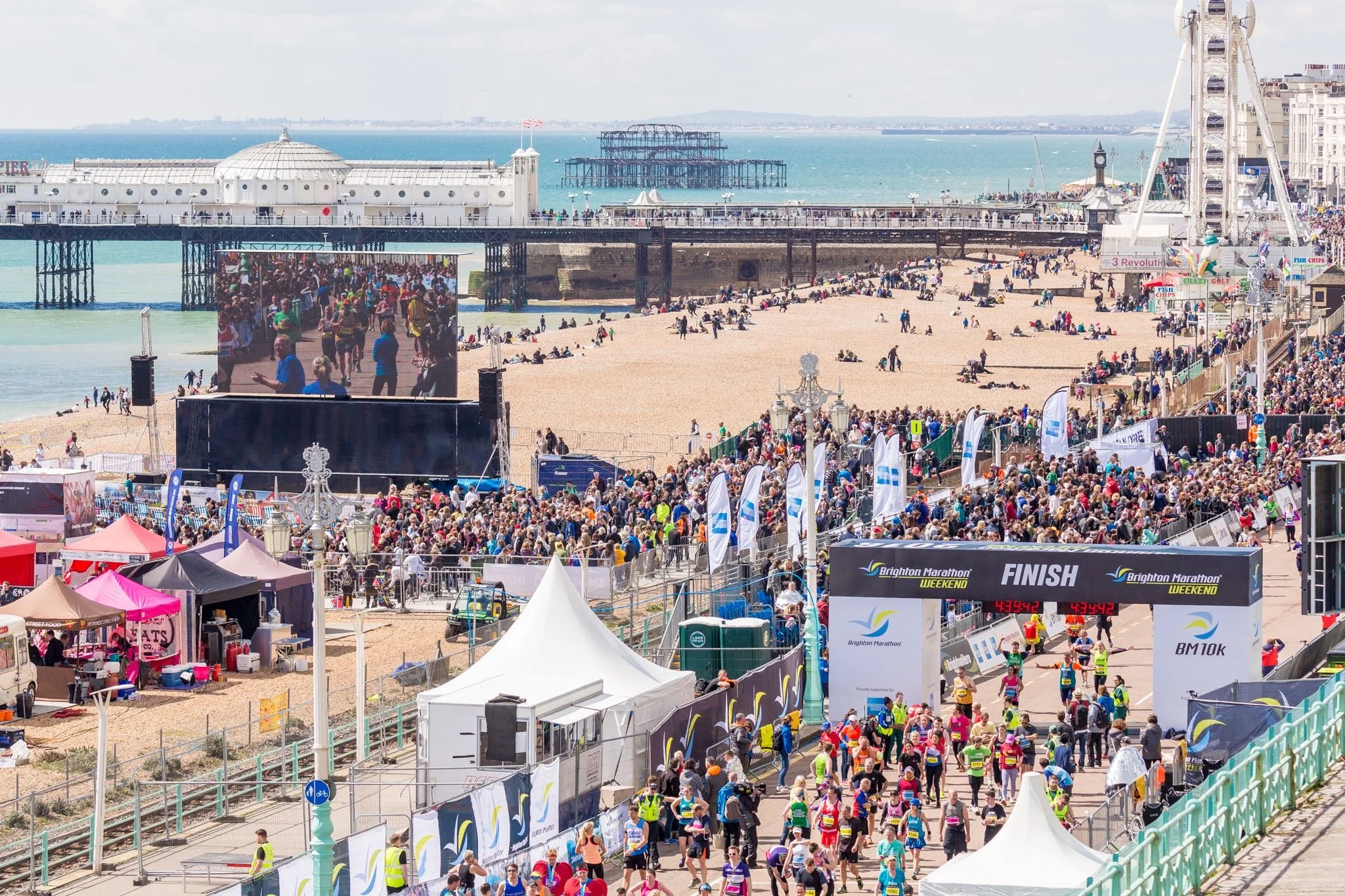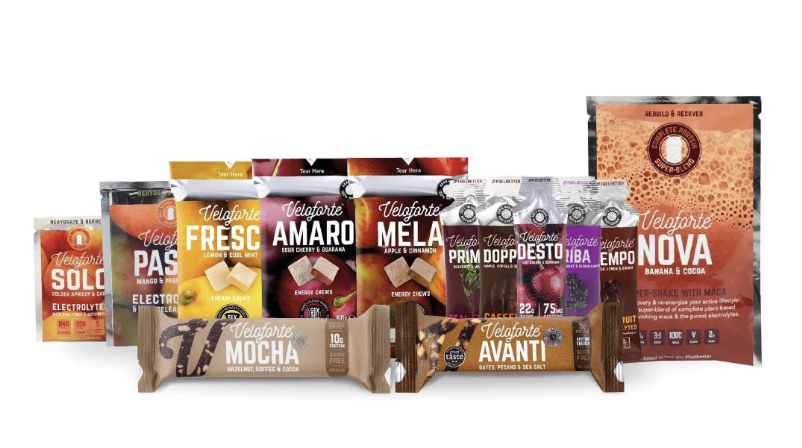Marathon Month: A Journey of Endurance, Community, and Resilience
Marathons are regarded as the ultimate test of endurance, and have captivated and inspired individuals for centuries. From their humble origins to the global phenomenon they are today, marathons have evolved into more than just races – they represent resilience, community, and the triumph of the human spirit. In this blog post, we wanted to explore the fascinating evolution of marathons while delving into the themes of resilience, mindset, commitment, and the benefits to both mental and physical health. This is a journey I have been exploring while undergoing my (Luke’s) first ever marathon last weekend in Brighton. I said this was a one time thing, although I’ve realised I perhaps needed it more than I thought, and I may well now have the bug!
Contents
London Marathon is happening on Sunday 21st April, 2024
Where did the marathon come from?
The origins of the marathon can be traced back to ancient Greece, where the legendary tale of Pheidippides captured the imagination. Pheidippides was a messenger who ran from the battlefield of Marathon to Athens- a distance of approximately 26.2 miles - to deliver news of victory. Though historically debated, this story laid the groundwork for the modern marathon, symbolising endurance, sacrifice, and the triumph of the human will. Although, it seems very perplexing that this has become something people would actually choose to do as a hobby or challenge in the 21st century. And it’s popularity is not diminishing; if anything, the sport is becoming more and more popular due to being more accessible than ever.
Today, marathon training embodies the same principles it did when conceived - with runners pushing their limits, overcoming obstacles, and discovering inner strength they never knew they possessed. Runners must cultivate a mindset of unwavering determination and perseverance to conquer the daunting 26.2-mile journey. Whether battling through winter training challenges or pushing through the infamous "wall" on race day, the marathon teaches valuable lessons in resilience, grit, and the power of the human spirit.
Why are so many people running, and why marathons?
In recent years, running has surged in popularity, becoming more accessible and inclusive than ever before. One of the driving factors behind this trend is the minimal barrier to entry—literally, all you need is a pair of running shoes and somewhere to run. Unlike other sports or fitness activities that may require expensive equipment or memberships, running can be enjoyed by virtually anyone, regardless of age, income, or location. Furthermore, advancements in technology have revolutionised the way we approach running and training. From wearable fitness trackers to smartphone apps, runners now have access to a wealth of tools and resources to enhance their performance and experience.
Record Figures applied to the TCS London Marathon 2024
In the world of running, every person embarks on their journey with a unique set of motivations and aspirations. For some, it's about conquering personal demons and overcoming adversity—a testament to resilience and inner strength. Others lace up their shoes to honour loved ones lost or to champion causes close to their hearts, raising funds and awareness along the way. In 2005, the London Marathon set a Guinness World Record for the largest annual fundraising event in the world, raising over £46.5 million for charity. Thats a crazy amount of money for a one day event, and there are many more like this. Then there are those chasing personal bests, pushing their limits and striving for greatness with each stride. And let's not forget those who step onto the starting line in pursuit of better health, using the marathon as a vehicle for transformation and well-being.
This diversity of background makes the running community such a unique and special space. The race showcases such a diverse tapestry of individuals, each with their own unique goals, challenges, and stories to share. I recently competed at the Brighton Marathon and experienced this beautiful community firsthand. There was an undeniable sense of unity and encouragement among participants. Strangers became friends, offering words of encouragement and high-fives as we tackled the gruelling 26.2-mile journey together. And, regardless of our individual reasons for toeing the starting line, we were all united by a shared passion for running and a collective determination to push ourselves beyond our limits. It became clear why people want to run marathons and be part of this community.
Winter Training - Is it a curse or a blessing?
Winter training is a mind game - Braving the cold, dark, and wet conditions is tough
The sound of frost underneath your feet, your breath billowing in clouds, and the sun struggling to peek through the grey sky; and then there was the darkness. Yep, it's winter—the time when training for a marathon feels like an uphill battle. Although, as I quickly realised, if you can persevere through this challenging time and brave those challenging conditions, it may well be the best decision you make!
Winter training isn’t just about battling the elements; it’s also a mind game. Waking up to chilly, dark morning, or dragging yourself out after a long hard day of work takes some serious mental muscle and inner strength. And let’s not forget the monotony of running in the same grey landscape day after day. There were times when the light was going down, I couldn’t feel my fingers, and the clouds of breath meant I couldn’t see anything in front of me, and I questioned - is this really worth it? In hindsight this was the best training I could have done! It’s all well and good to try to run a half marathon, or 5k at record pace. But, how are you going to cope with race day nerves and adrenaline? What happens if you get a stitch in the race from getting your nutrition or pacing wrong, have a niggle of an injury, or are hit with unforeseen conditions? You’ve probably all heard the saying, ‘Running is 90 percent mental and the rest is physical’. There is a lot of truth to this: there are so many unknown variables we cannot train for, and when it comes down to it, mindset will likely be one of your biggest friends or foes on the day. And I’m no psychology expert… but what I will say is that my winter training helped reframe my mindset and build resilience. If I could train in the cold and dark, I felt I could overcome most circumstances, and I took this confidence into the race. And it was definitely needed!
Mental and Physical benefits of running - Rogue Runners Ripley
Benefits of exercise and running on your mental and physical health:
Immune System - Winter training can actually boost your immune system. Exercising in the cold stimulates your body's defences, making you less susceptible to those pesky winter bugs.
Runners High - Running causes the release of endorphins such as serotonin and dopamine which are responsible for mood and funtion
Reduce anxiety & Increases mental clarity/ focus - Running increases blood flow to your brain and reduces levels of stress hormones, such as cortisol, which can alleviate symptoms of anxiety
Basically, running is a wonder drug! You hear people say it. Although you can really notice the benefits when you actually start to include it in your routine! So yes, I was signing up to a marathon as a way to do something with my brothers, and as a new challenge. But in the end I got a lot more from the process than I anticipated and now feel it is something I am going to have to keep up.
My marathon journey.
Why did I choose to run the marathon? I chose to run the marathon as a family challenge. My brothers and I grew up doing endurance sports together. Growing up we competed in ultra-kayak marathons across the country, although somewhere in our 20s the urge to do sport and stay active had dwindled a little, and we realised we all needed motivation. I’ve never been one for just enjoying the process; instead, needing an end goal to work towards. And as per all the memes of turning 30, it was either putting on lycra and getting on a bike, or running a marathon - and we already did the lycra thing last year... So running a marathon it is! On a dark winter's eve in December, we all purchased our tickets to run Brighton Marathon - how hard could it be?
I signed up for Brighton Marathon in December, and started a 12 week training plan through ‘Runna’ in January. I found winter training extremely challenging, although I can’t stress enough how much this helped me prepare and grow mentally. Although it was by no means plain sailing! I had quite a few hiccups along the way, and skipped the last five and a half weeks of my training schedule - yes, that is a lot to miss!
The ‘Runna’ app is running training app, creating running plans to help you meet your personal goals
I followed the ‘Runna’ app stringently through the first 6 weeks. This started slowly, gradually building up from shorter 6km runs to eventually doing half-marathons. By week 4, I was averaging about 60km a week and found this manageable and surprisingly enjoyable. It was amazing! Previously, anything above 5k was a stretch.
I was feeling really great, although in mid-March I had quite a challenging time. I lost my grandad very unexpectedly, and at the same time, I had been struggling with work and some personal challenges. This all took a toll on my mental health, and as a result, sadly, the first thing that took a hit was my training. I quickly went from the fittest I had ever been, and feeling extremely well prepared, to not doing a single run week on week. It’s extremely sad because, as touched upon, running had become my natural drug, and in hindsight, it was the one thing that I should have kept doing. It gave me purpose, structure, and was fantastic for my mental health and clarity. Thankfully, after weeks of personal reflection and mourning, I realised the error in my judgement and got back into running. Instantly, I noticed this had a positive impact on my health. Although I only had two weeks until the marathon, and was concerned I had left it too late. I should have been tapering my running around this point in preparation for the marathon.
There was nothing I could do, I had to trust my training and experience, and hope that the base level I had built from the first 6 and a half weeks of training would get me through the marathon. I was hopeful I should be able to finish, although I’m extremely competitive, and my concern was whether I could finish in a time I would be happy with. To make it worse, I was running with my brother, and he had been training hard, so I really didn’t want to let him down. It was actually a full family affair; my Mum was running the 10km race, and I was running the marathon with my eldest brother Matt. In the days leading up to the race, we both had nervous excitement and were unsure whether we were prepared, but we were equally aware it was too late to do anything; we both just wanted to get going!
Brighton Marathon 2024
Brighton Marathon - Race Day 2024
Bring on race day. Brighton was exactly as you would expect—it felt like more than just a race; it was a vibrant celebration of community spirit with an infectious carnival vibe. On race day, neighbourhoods unite as homeowners set up support stations with jelly babies and oranges, while the streets come alive with steel bands, singers, and drummers. This colourful atmosphere transforms the marathon into an inspiring event where every participant is uplifted by the collective encouragement of the community. Whenever the run got tough, there would always be someone there to give you words of encouragement, and a jelly baby!
The race day unfolded with a blend of nerves, anticipation, and the electrifying energy of the crowd, propelling us through the first 22 kilometres with ease—it went so quick! The breathtaking coastal views provided a scenic backdrop as I ran alongside my eldest brother Matt. Having a running buddy was a new and welcomed experience that offered distraction and support, making this an extremely memorable run. As the miles passed, I found myself picking up the pace, fuelled by a sense of strength and determination. I had always had the intention of running a negative split strategy. In simple terms, I ran the first half slower than the target pace, with the intention of speeding up for the second half if my body felt good. This is a great approach to make sure you avoid burn out, and that you don’t run too fast at the start due to race day excitement.
“The Wall”. The latter half of the race presented its challenges, with the course transitioning from picturesque coastal roads to desolate industrial estates, each step feeling like a daunting reminder of the distance yet to conquer. The infamous “wall” loomed ahead, as my body felt heavier and heavier as fatigue set in. The real challenge came in the final kilometres. The finish line felt like it was getting no closer. Every time I looked at my watch, the time had gone up, and distance hadn’t seemed to go down - I finally understood what people meant when they say you cannot train for the last few km’s. Runners around me were reaching their limit, and some had pushed themselves too hard and needed medical attention. It’s a real test of mental fortitude, with each stride bringing you closer to the elusive finish line. Something that really helped me was my nutrition. I had expected these challenges and didn’t want to rely on race nutrition, instead carrying with me a stash of my trusty ‘Veloforte’ training gels and chews. They are an all natural energy and chew alternative; these propelling me forward through these low, energy depleted moments. It is these tough moments where the winter training and mental strength really came in use. Amidst the sea of cheering spectators, I summoned the last reserves of strength, crossing the finish line with a surge of emotion and an overwhelming sense of accomplishment.
Veloforte ‘Runners Pack’ - The chews were my secret weapon
The performance of the day went to my Mum. A lot of the emphasis was on my brother and I, although I hadn’t appreciated how much of a big deal the 10km was to my Mum- this was her first ever race and she’d been training hard. She got a PB by more than 5 mins, and achieved 19th in her age category - how amazing! And Matt and I both finished in really respectable times of 4.06 and 3.39 respectively. Pretty amazing considering Matt was juggling long hours working for the NHS, whilst also being a new Dad. Just another example of all the underlying stories at the marathon. There’s definitely room for improvement, and a lot of what ifs if we were able to train properly - but how often do things go smoothly? Perhaps all the mishaps, mental battles and challenges were part of our marathon journey and achieving what we did. I certainly don’t think I would have pushed through the last 5km if I didn’t have a focused, strong mindset.
One of the biggest takeaways from the marathon was not my performance, but rather a story of personal growth. I’m a lot fitter, healthier, and happier than I was 14 weeks ago, and understand the importance of fitness on my mental health… And I’ve achieved something pretty cool. I’ll now always be more appreciative of friends going through the same feat, or their own version of it. Whether that be couch to 5k, 10k, half marathon, marathon, or an ultra - kudos to everyone for investing time into their personal health and journey.
In a world often divided by differences, the running community stands as a shining example of unity, resilience, and solidarity. Whether you're racing against the clock or simply chasing the joy of movement, there's a place for everyone in this vibrant and inclusive community. For all those doing the London marathon next weekend, good luck!! Remember to cheer on and support those around you, and enjoy it if you can. A lot of the day will become a blur of emotions, but it will be something you won’t regret!
Written by Luke Jones, Co-Founder of Re Cabins - Wed 10th April 2024








